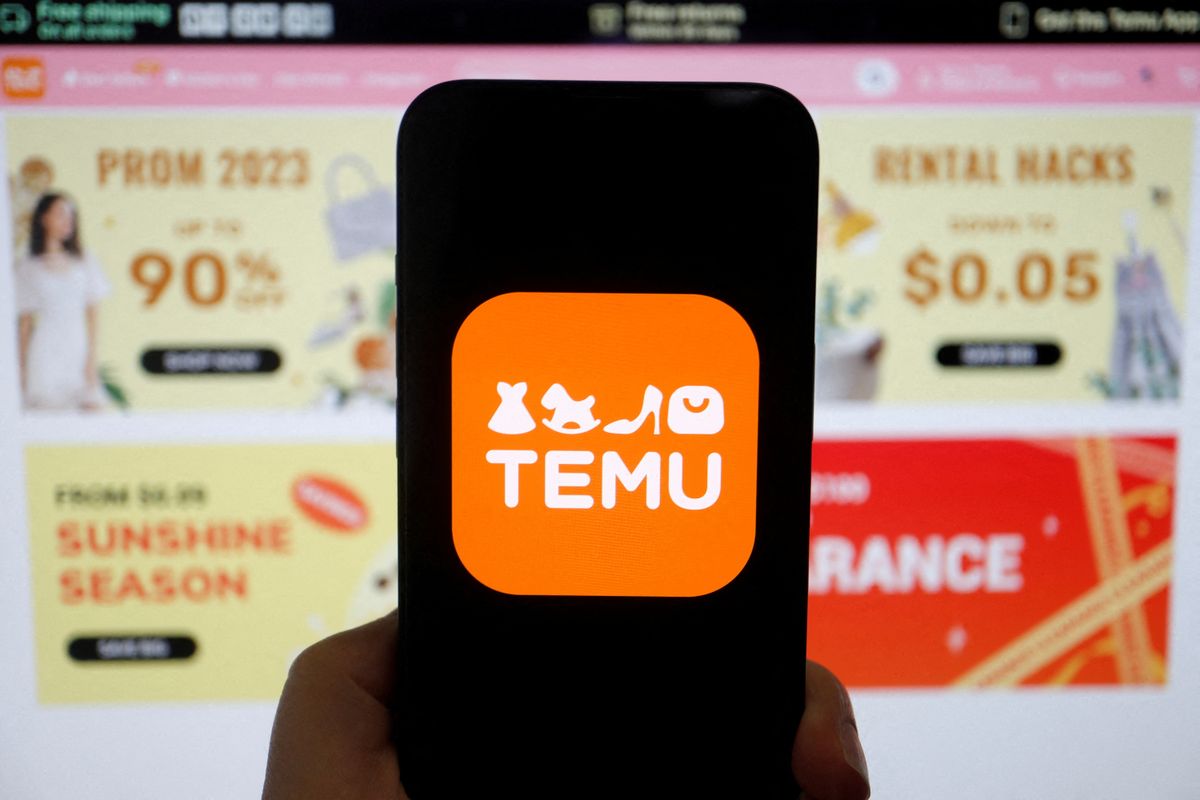How Temu made waves from China to the US
Temu has set some lofty goals for its North American venture.

A few minutes every morning is all you need.
Stay up to date on the world's Headlines and Human Stories. It's fun, it's factual, it's fluff-free.
The backstory: There's this e-commerce platform called Temu, owned by the Chinese e-commerce giant PDD Holdings in China. Basically, it's an app where you can shop directly from Chinese merchants for shoes, jewelry, beauty gear and all sorts of home goods. Temu launched in the US last September and has been gaining traction in the global fast-fashion scene.
Temu has set some lofty goals for its North American venture. Rumor has it that it’s set its sights on beating Shein, another Chinese e-commerce player popular in the US, in terms of sales on at least one day between now and September 1, its one-year US anniversary. Insiders close to the matter said that PDD sees Temu as a strategic move towards dominating the online shopping landscape and taking on industry heavy-hitters like Amazon and eBay.
More recently: During the Super Bowl in February, Temu made a grand debut by airing its ads. Temu featured an ad with a shopper trying on different outfits, and it's worth mentioning that getting airtime during the Super Bowl doesn't come cheap. We're talking millions here, like US$6-7 million for just 30 seconds.
But when Temu hit the American market, the US government started worrying about data security risks, especially because Temu's parent company, Pinduoduo, got in trouble for having malware issues. Google even suspended Pinduoduo from its app store in March. Montana, the state that banned TikTok, also banned some other Chinese apps, including Temu and WeChat, the same month over worries about personal info ending up in the hands of foreign entities.
The development: Temu is making some waves in the US online shopping arena and has quickly become one of the top apps on Apple's US App Store. According to data firm YipitData, it's gone from US$3 million in gross sales back in September to US$192 million in January. In just five months, Temu even raked in US$500 million in sales.
And you know why it's been so successful? Well, it's all about its strategy. The company offers low prices and flash sales that resonate with cost-conscious consumers. It seems to be working because Temu's website visits surpassed Shein's, another “fast-fashion” retailer, in January. But it hasn't been all smooth sailing for Temu, including legal action from Shein, alleging influencer-driven bad press and deceptive tactics. Plus, there are some concerns about data security that have raised eyebrows among American officials.
Key comments:
“Temu’s app performance is almost unprecedented,” said Adam Blacker, Apptopia’s director of content and communications. “But it’s too new and we don’t know the outcome for Temu yet.”
“Given the current challenging macroeconomic environment and the backing of parent PDD Holdings, Temu is well-positioned to continue its aggressive growth strategy among US consumers,” said Abe Yousef, a senior analyst at app-tracker Sensor Tower.
“We set out to provide consumers access to premium products from around the world by the best manufacturers at wholesale prices,” said a Temu spokesperson last year. “We believe this direct access will improve the online retail experience.”
“PDD Holdings’ (formerly Pinduoduo) suspended namesake app — which Google removed from its store on malware allegations — raises the cybersecurity stakes it faces as it pushes beyond mainland China. Google’s recommendation for users to uninstall PDD’s apps risks stoking similar concerns about its overseas e-commerce app, Temu, which could prompt new customers to turn tail and abandon the platform,” said Catherine Lim and Trini Tan, analysts at Bloomberg in March.




Comments ()